Precision dental arts
Our surgical services include implant placement, wisdom teeth removal, bone grafting (socket preservation and guided bone regeneration), simple extractions, pre-prosthetic surgery, and simple biopsies, to provide our patients with the best options available
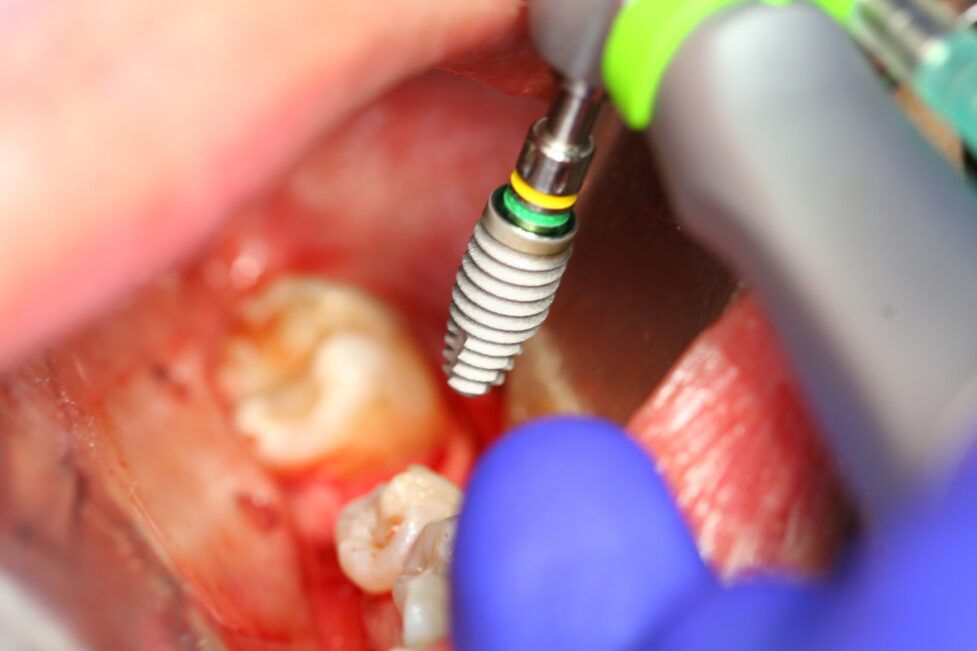
Implant Placement
Are you missing a single tooth or multiple teeth? Do you miss being able to chew like you used to? Maybe you feel that you can chew “just fine” and do not feel it is important to replace any missing teeth. Sure, you’ll still be able to chew, but that doesn’t change the fact that there is still instability caused by missing teeth. The other remaining teeth begin to shift, lean, and/or rotate, and this will change your bite, make hygiene harder, and eventually affect the way you eat, speak, and smile.
When a tooth is missing, the bone that once housed the tooth begins to fade away – this is called bone resorption. When bone is lost, there are negative effects on the stability of remaining teeth, and if severe enough, it can cause changes to the facial form and have negative effects on particular nerves.
For these reasons, dental implants have become the standard of care for replacing missing teeth because no other option can function as similar to a natural tooth as a dental implant can. Dental Implants are the most predictable option for replacing teeth with a 97-99% success rate, they prevent harm to any remaining healthy teeth, and stimulate your bone so that it will not undergo resorption.
What is a dental implant?
A dental implant is a titanium screw that is strategically placed within your jawbone. Once placed, the bone will heal around it for several months. During this healing, the bone around the implant locks the screw into place. After this, we are able to make a crown that replicates the missing tooth and attach it to the implant.
We are excited to speak to you about the benefits of dental implants during your visit to Precision Dental Arts. Call for a consultation today!
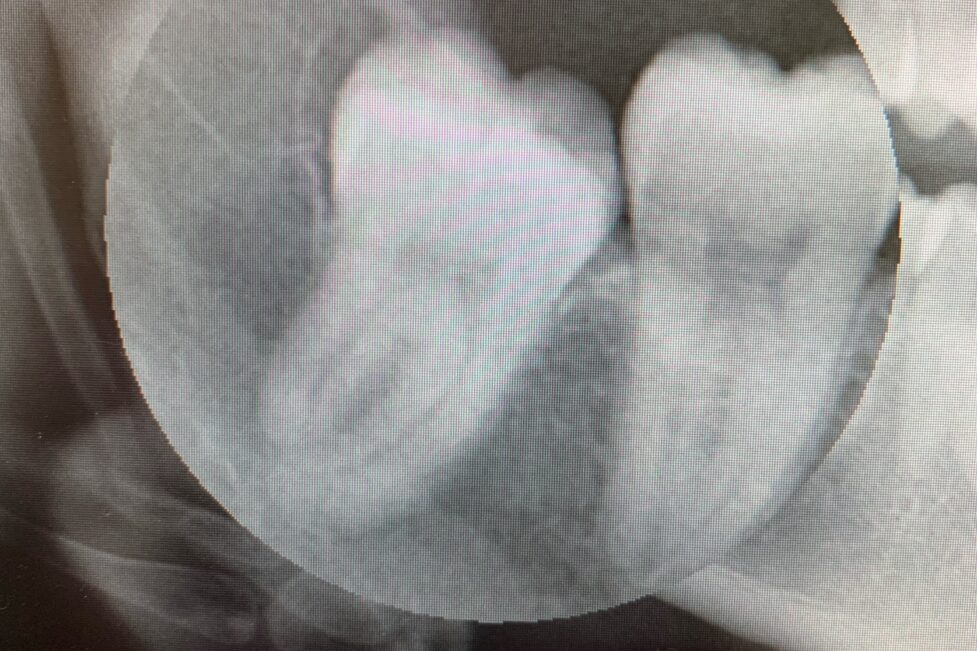
Wisdom Teeth Removal
Removal of wisdom teeth is a common dental procedure that can benefit you in many ways. Third molars, commonly referred to as wisdom teeth, are the last molars to emerge and usually come in between the ages of 17-25. There are typically four in total, two in the top and two in the bottom, and they are located in the very back. Third molars were termed “wisdom teeth” because they come in much later in life compared to the others.
Most people do not have enough space in their jaw for third molars to be able to emerge from the gumline fully. Because of this, they end up erupting only partially and at an angle. Under these conditions, wisdom teeth can end up causing pain, infection, and/or damage to other teeth. If wisdom teeth do not erupt at all, remaining encapsulated in bone, they can sometimes develop pathology or cause pressure discomfort.
Here at Precision Dental Arts, we are advocates for the removal of wisdom teeth before they cause these potential problems in the future. If your wisdom teeth are already causing you discomfort or you want to remove them as a preventative measure, call us for a consultation with Dr. Moorhead.
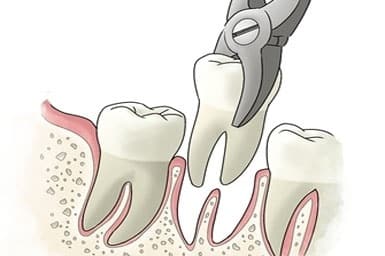
Simple Extractions
If you have a tooth that is infected, cracked, or broken, we may recommend removing the tooth. Dental x-rays can help determine if this is the best treatment for you. If so, we will remove the tooth and either place a dental implant at the time of extraction or prepare its socket for replacement with a dental implant in the future.
This is a simple process that does not require sedation unless requested. Most of the time, a local anesthetic (numbing) will do the trick so we can safely remove the tooth and return comfort to your mouth.
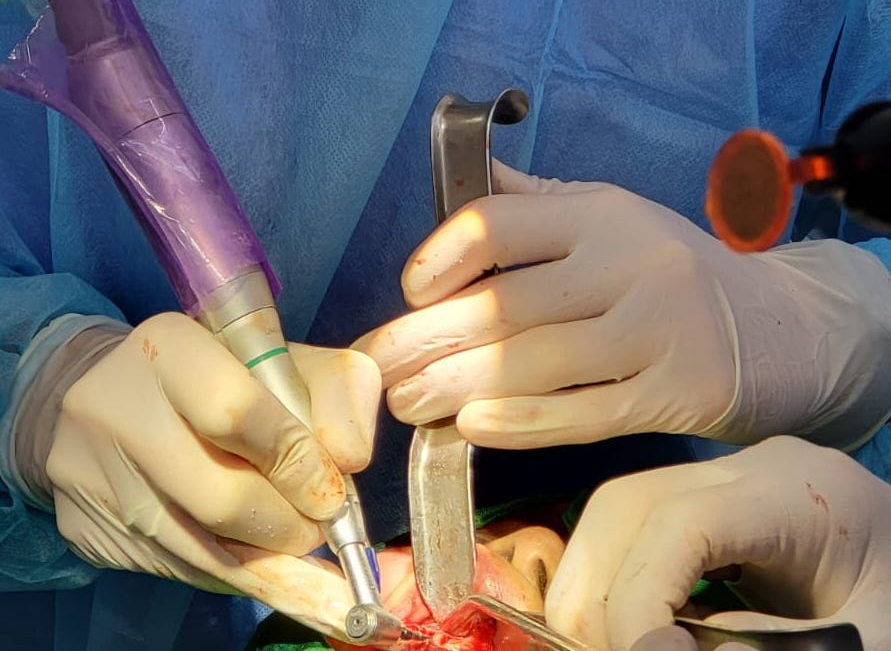
Socket Preservation
Socket preservation is a minimally invasive procedure in which your doctor removes the tooth, cleans the socket, and then places a bone graft. This enables the bone to remain wide enough to provide a stable foundation for replacing the tooth. Without socket preservation, the bone left behind after removing a tooth will fade away over time, causing inadequate bone quantity and shape.
Therefore, socket preservation optimizes your bone structure so that the missing tooth/teeth can be replaced by dental implants, and enables a more comfortable, stable fit if you choose to use the denture.
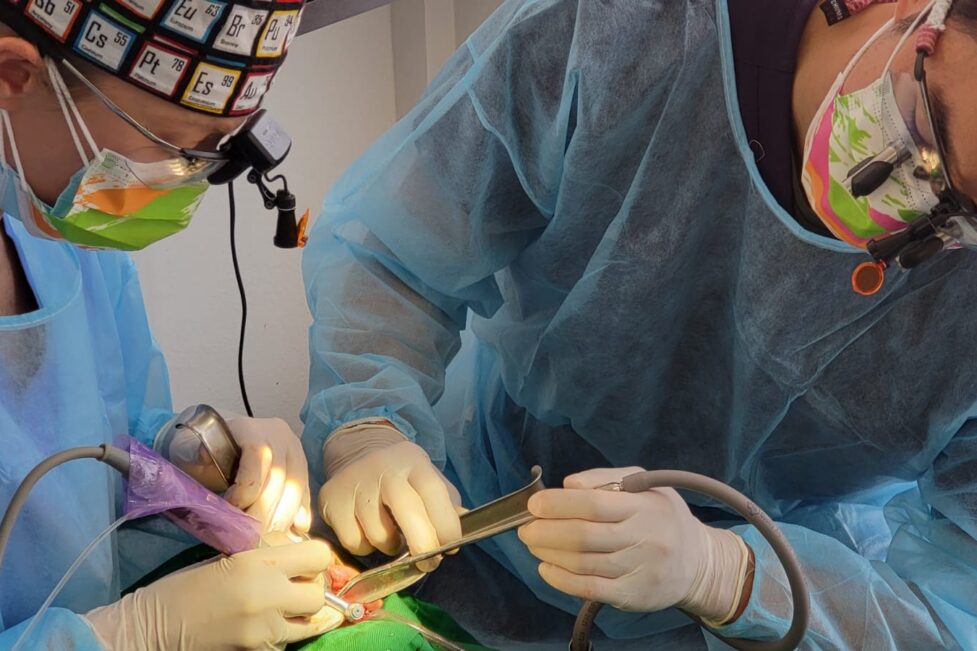
Guided Bone Regeneration (GBR)
When a tooth is extracted, an empty space is left behind. When a tooth is missing, the bone that once housed the tooth begins to fade away – this is called bone resorption. When bone is lost, there are negative effects to the stability of remaining teeth, and if severe enough, can cause changes to facial form and have negative effects on particular nerves. The other remaining teeth begin to shift, lean, and/or rotate, and this will change your bite, make hygiene harder, and eventually affect the way you eat, speak, and smile.
Guided Bone Regeneration (GBR) is the process of placing bone back into this area after a tooth extraction to help your body regenerate new bone tissue. The concept and goal is much like socket preservation. One difference is that GBR is a procedure that can be performed in an area that has already healed from a past extraction, but the healed bone is now deficient in both quantity and shape. GBR may be performed as its own procedure, during a tooth removal procedure, or during placement of a dental implant. With GBR, bone is packed against/into the deficient area and secured into place with a membrane and sutures.
We take extreme care to monitor every step of this process to ensure your mouth is healing correctly. Our goal is to ensure a stable regeneration that allows you to have optimal function of your oral cavity. GBR optimizes your bone structure so that the missing tooth/teeth can be replaced by dental implants, or it enables a more comfortable, stable fit for your denture.
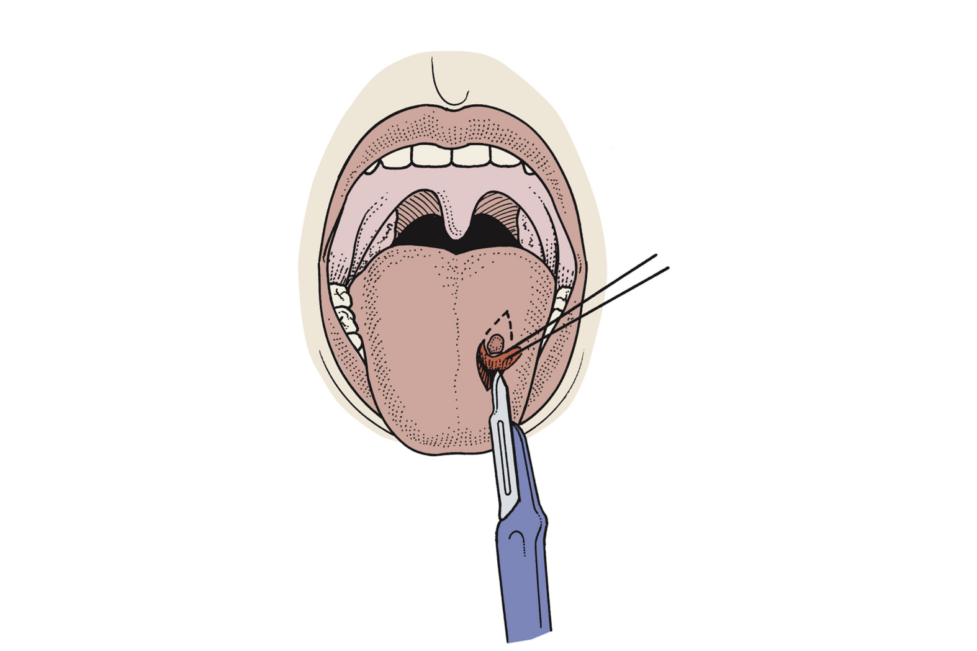
Dental Biopsies
There are numerous types of pathologic conditions that can occur in the mouth. Some happen in areas that you are not able to see easily on your own. These can occur on your gums, tongue, inside of your cheeks, on the roof of your mouth, in your throat, and even in your jaw bones. While most pathologies encountered are benign and manageable, oral cancer is a serious condition to monitor for.
This is why during your hygiene visits at Precision Dental Arts, an oral cancer screening is part of Dr. Moorhead’s routine exam with you. She will screen for any abnormalities, and if any are found, she will inform you if a biopsy is indicated.
A biopsy is a procedure that can help determine what the abnormality is – i.e., a diagnosis. Depending on the size, either only a small portion or the entire abnormality is removed and then sent to a pathology lab for analysis. The biopsy results usually take 1-2 weeks to receive, at which time they will be shared with you and an effective treatment plan determined.
The majority of biopsies are a simple process that are made comfortable by using just a local anesthetic (numbing). If you would feel more comfortable with a form of sedation though, do not hesitate to make this request.
We understand how a biopsy can make some patients feel nervous. We do our best to communicate every step of the procedure. We want you to be at ease in this process so we can get accurate information and move forward together.
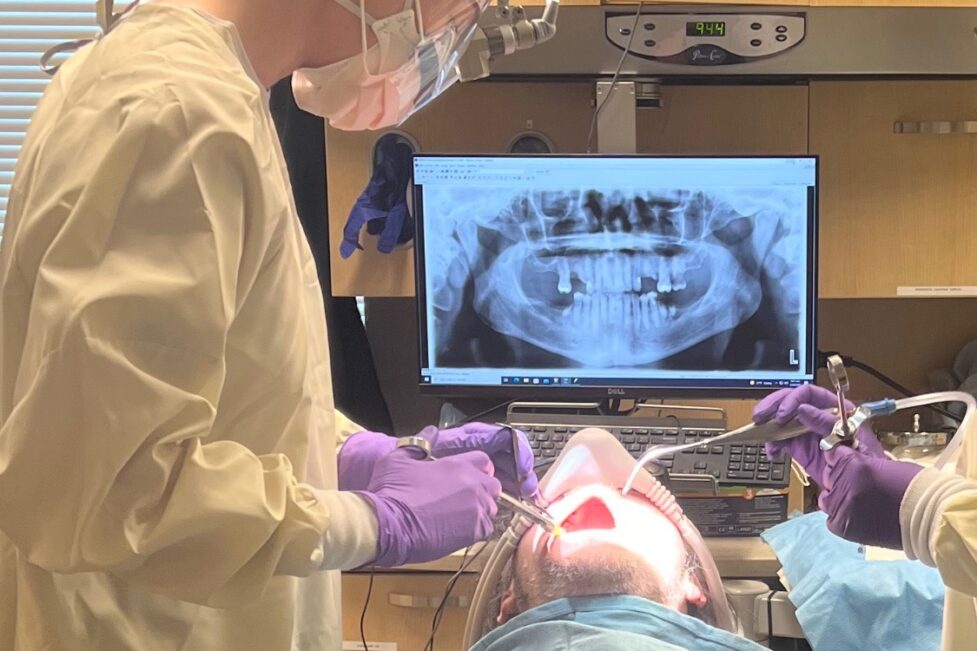
Pre-Prosthetic Surgery
Pre-prosthetic surgery is a procedure that is performed to help ensure greater success when fitting a prosthesis. Pre-prosthetic surgery is most commonly indicated when there is excess bone that would get in the way of making a denture fit in a stable/functional and comfortable manner.
Pre-prosthetic surgery is an excellent way to lay the groundwork for a positive solution to a brighter and healthier smile.